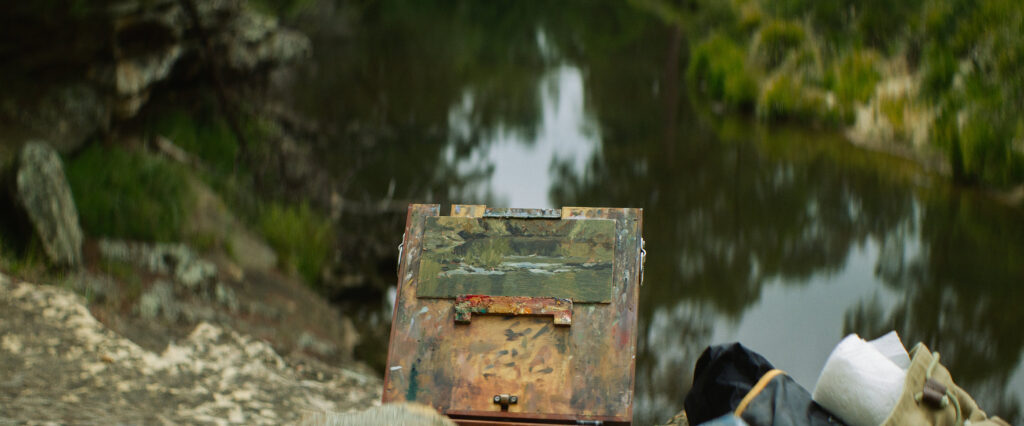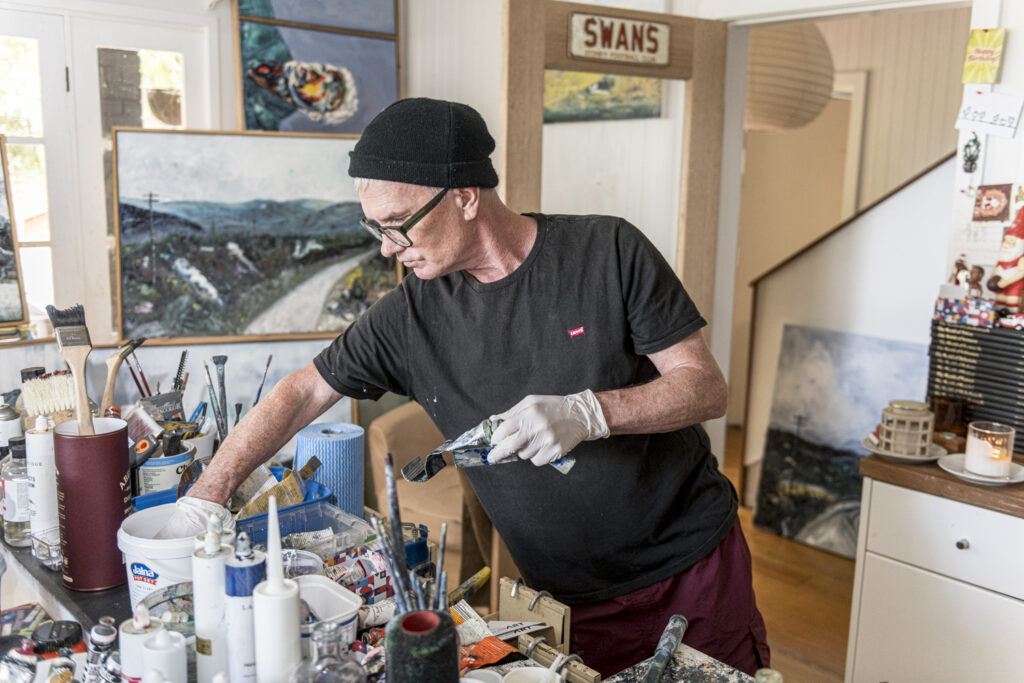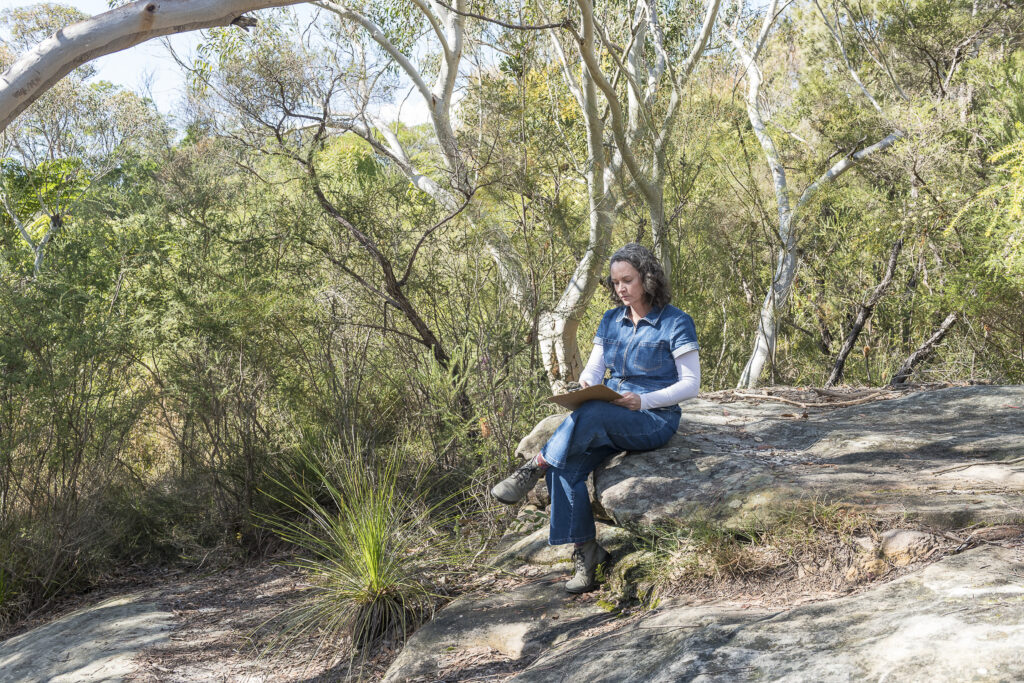Mussett Holdings
Words: Michael Sharp
Photography: Ashley Mackevicius
Will and Connie Mussett were born and bred in The Southern Highlands and have been together since the final year of high school at Oxley College. Will was working in his family’s furniture making business in Mittagong and Connie was commuting to Sydney for her finance job with Westpac, when eight years ago their life changed dramatically – and a little unexpectedly.
“We bought this property,” Will begins, before he is interrupted by Connie.
“Will bought the property,” she corrects. “He came home and told me he had put in an offer on a piece of land.”
Connie gives Will a look from across the kitchen which makes it clear she didn’t embrace the idea immediately.
“It was more than I wanted to spend,” she says. “I work in finance, so when he showed me the numbers, I said: “What?!”
The Colo Vale property was almost 40 hectares, an empty block with no services.
“When we bought it we had no intention to be farmers,” Will says. “It wasn’t even a thought. We were living on five acres and wanted some extra space for the kids to grow up, maybe produce a bit of food for ourselves – a house cow and a couple of chickens.”
However, Endeavour Energy advised that if they wanted to connect power to their property they would have to upgrade the whole street – at a cost of at least $150,000.
“We couldn’t afford that,” says Will, “so we had to go off grid.”
They built a barn and began living in it 2017, with three children under seven, while they started construction of the main house. They took on five chickens from Connie’s sister and then a chance conversation led to them agisting some beef cattle.
The cattle owner then called to say he had an old caravan that had been converted to house 50 chickens, with the caravan allowing the chickens to be moved regularly.
“He said he didn’t have time to look after them and would we take them on,” Will recalls. “Connie went into risk mode and asked what if foxes take them, which was understandable, but we decided to give it a go.
“We wondered what we would do with 45 eggs each day, but after talking to family and friends we discovered that 45 eggs a day was a drop in the ocean compared to the demand for local pastured, free range eggs.”
The Mussetts discovered immediately that their chickens had a remarkable impact on their land.
“Even with 50 chickens in a small caravan, a couple of weeks after you move them the ground just exploded,” Will says. “At first the ground looks terrible because the chickens have scratched it and dropped heaps of manure on it, but three weeks later it is lush and green and thick and tall. We started looking into it and learning about regenerative farming. We decided this was a challenge we wanted to take on, so we ordered 500 chickens.”
The 500 chickens produced about 450 eggs each day and Will would load them on to his Ute and deliver them to local buyers during the week. He decided to try selling at Bondi markets on weekends, beginning with 40 dozen – and the demand gradually increased until they were selling 100 dozen.
They introduced bee hives to add diversity, even though Will is allergic to bees, and two jersey cows to produce milk for the family. They also purchased some goats as a chemical free way of getting rid of noxious weeds on the property.
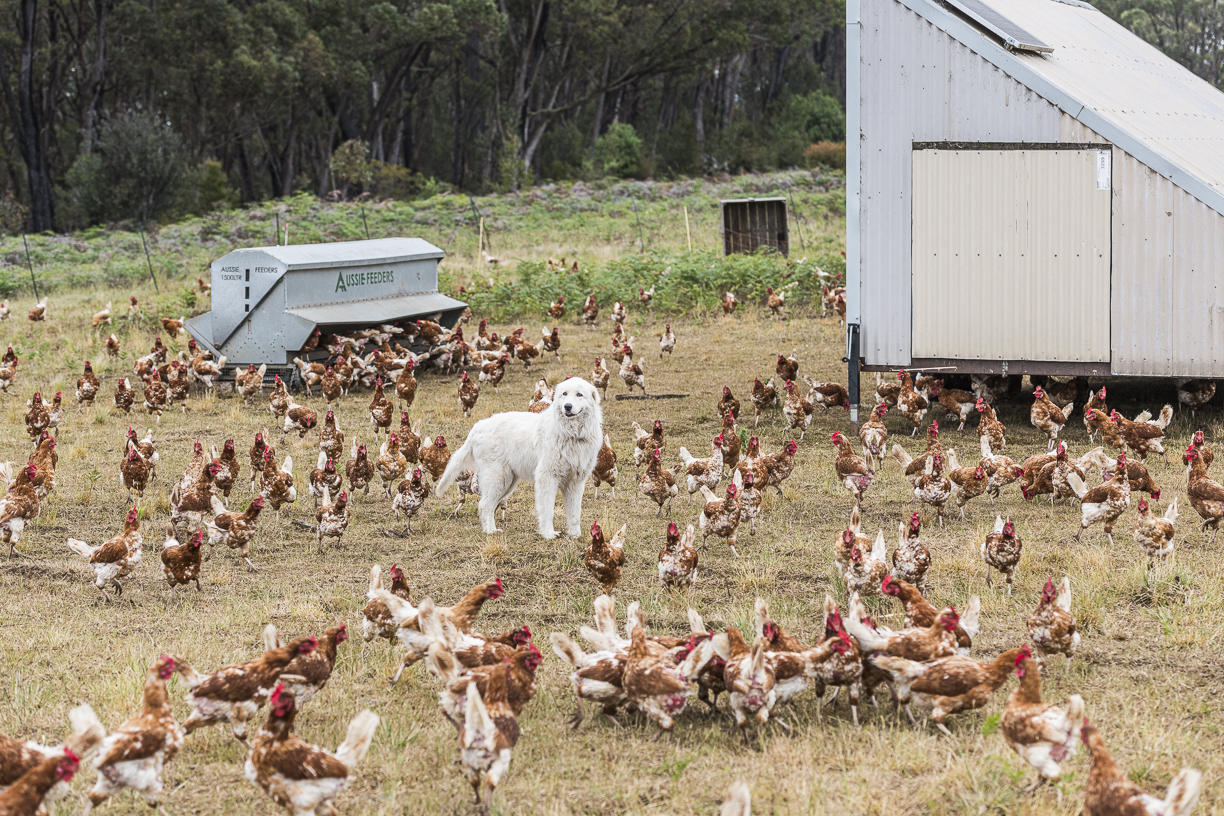
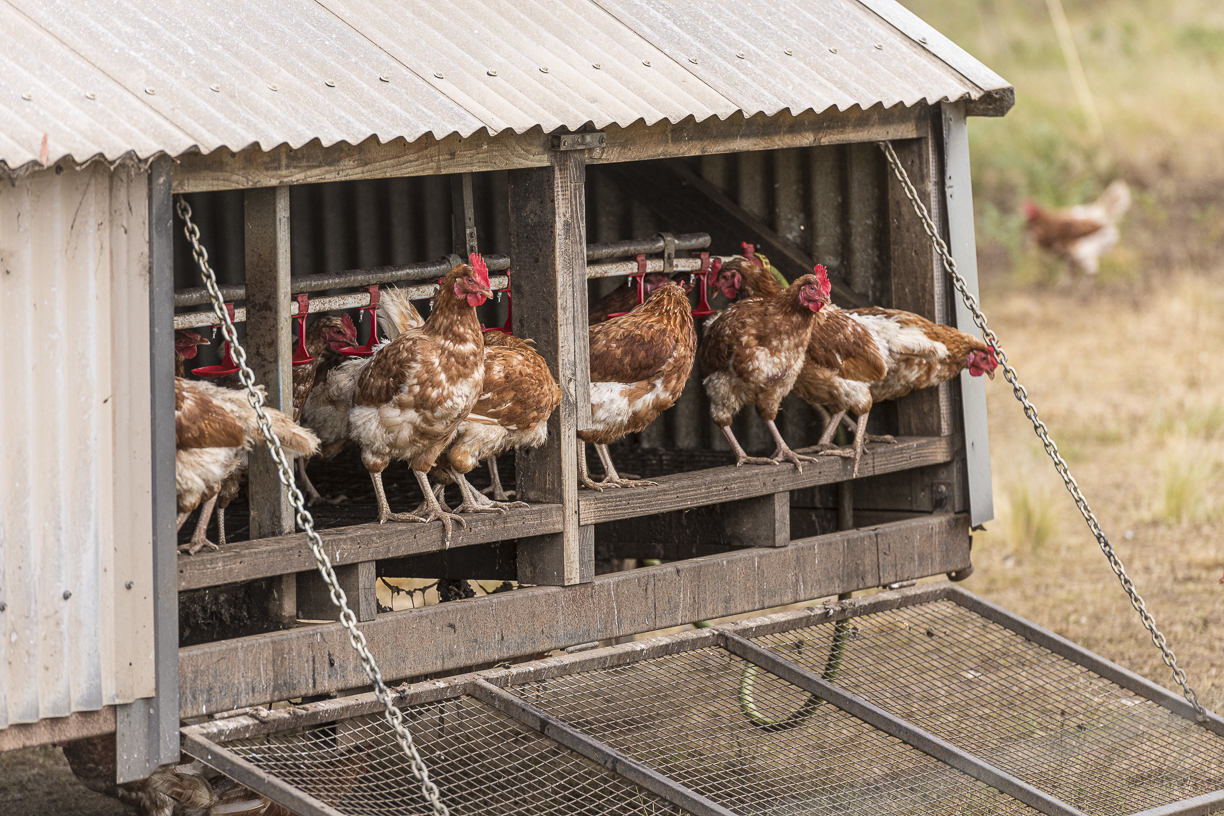
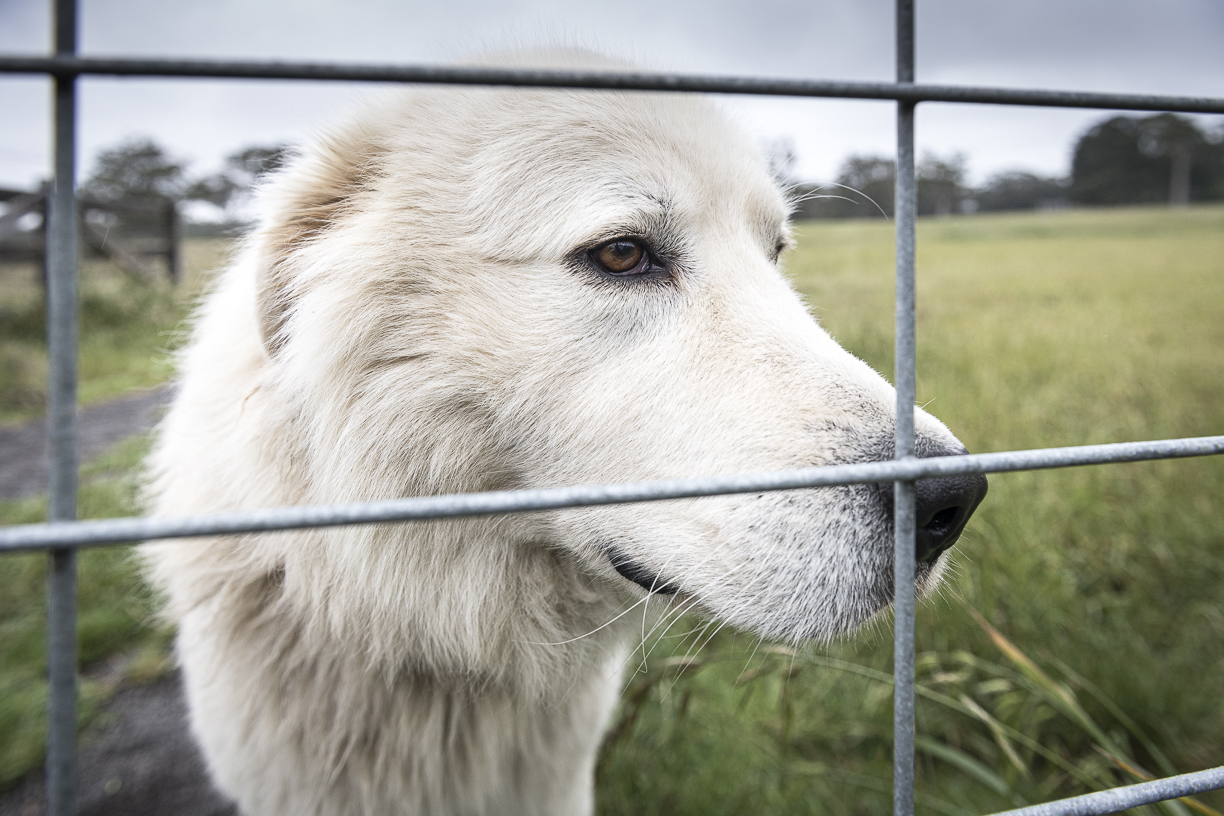
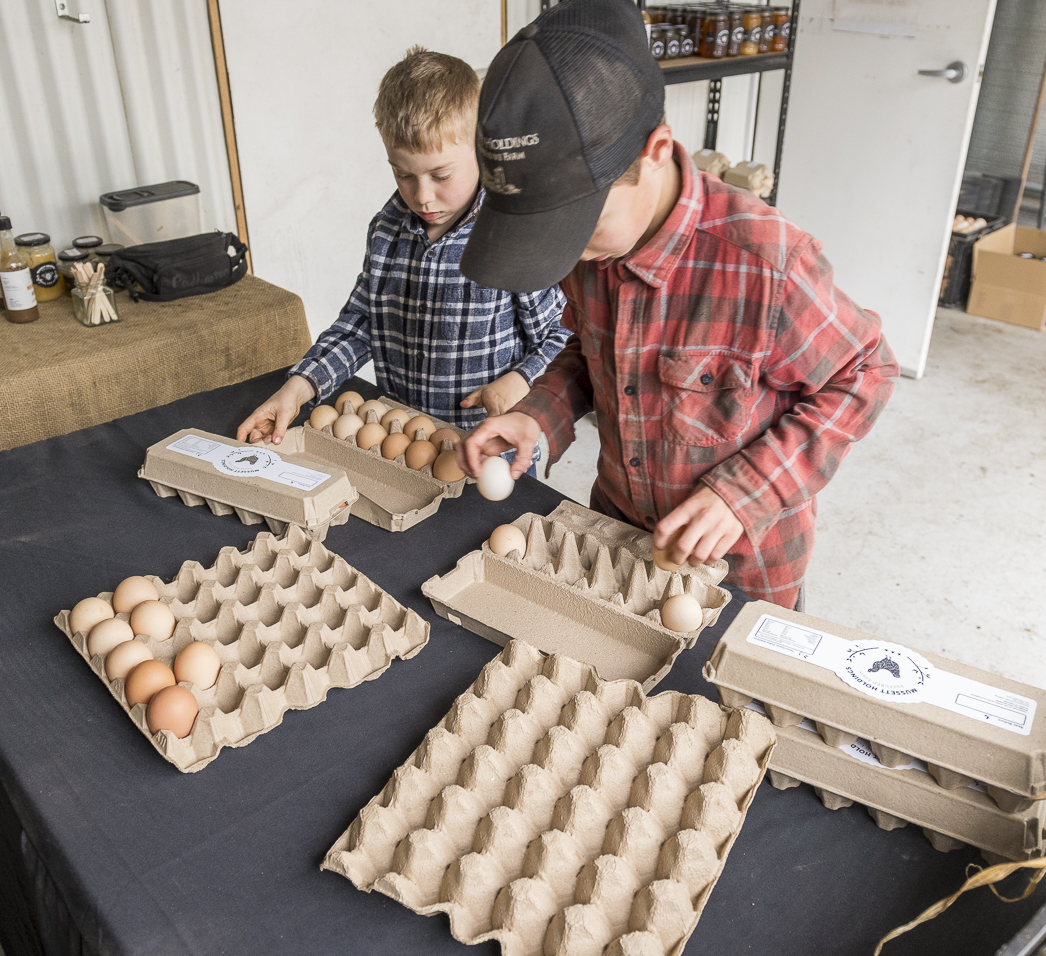
Full time farming
When Will finished school, he had no idea what he wanted to do. He began studying network engineering at University of Wollongong before working in IT repairs, hotel management and then a marketing role with Microsoft.
He also worked in the family business in Mittagong called The Woodage, which began in 1993 as a timber supplier and evolved into a furniture manufacturer. In 2009, he and a friend, Steve Fitzgerald, purchased The Woodage from his father and his father’s business partner.
Connie, meanwhile, had been hired by Westpac immediately after she completed her degree in maths and finance.
Soon after they increased their business to 1,500 chickens, Will decided to take a year’s break from The Woodage. Connie continued working at Westpac, returning to the office earlier than planned after the birth of their third child.
“I loved The Woodage and building furniture, but it was a lot of hours and it didn’t involve the family at all,” Will says of their decision. “With the farm, I was at home with my family. At the beginning, Harry [the youngest child] was literally with me, strapped to my chest.”
In late 2018, Will sold his half share of The Woodage to his business partner and focused full time on the farm.
Regenerative farming models recommend a three flock system, with each flock six months apart in age to ensure a consistent supply of eggs throughout the year. The oldest chickens are sold at about 18 months of age and there is little difficulty finding buyers.
Mussett Holdings’ eggs are described as “pastured”.
“The difference between pastured and free range is that to be pastured the chickens must always have grass,” Will explains. “You have to keep them moving so they are on pasture. Free range is usually in fixed sheds with a fixed fence around a dirt lot.”
So Mussett Holdings expanded from 500 to 1,500 chickens – and their research into regenerative farming led to expansion plans.
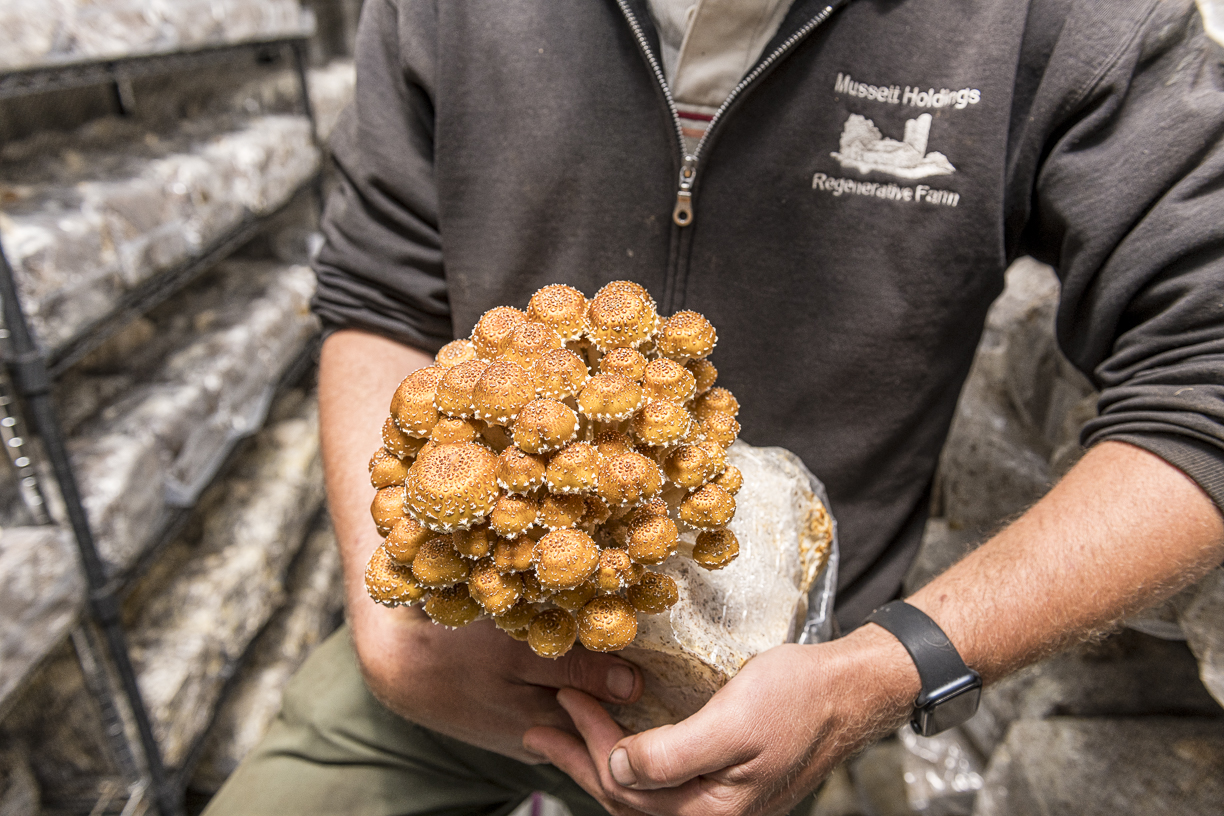
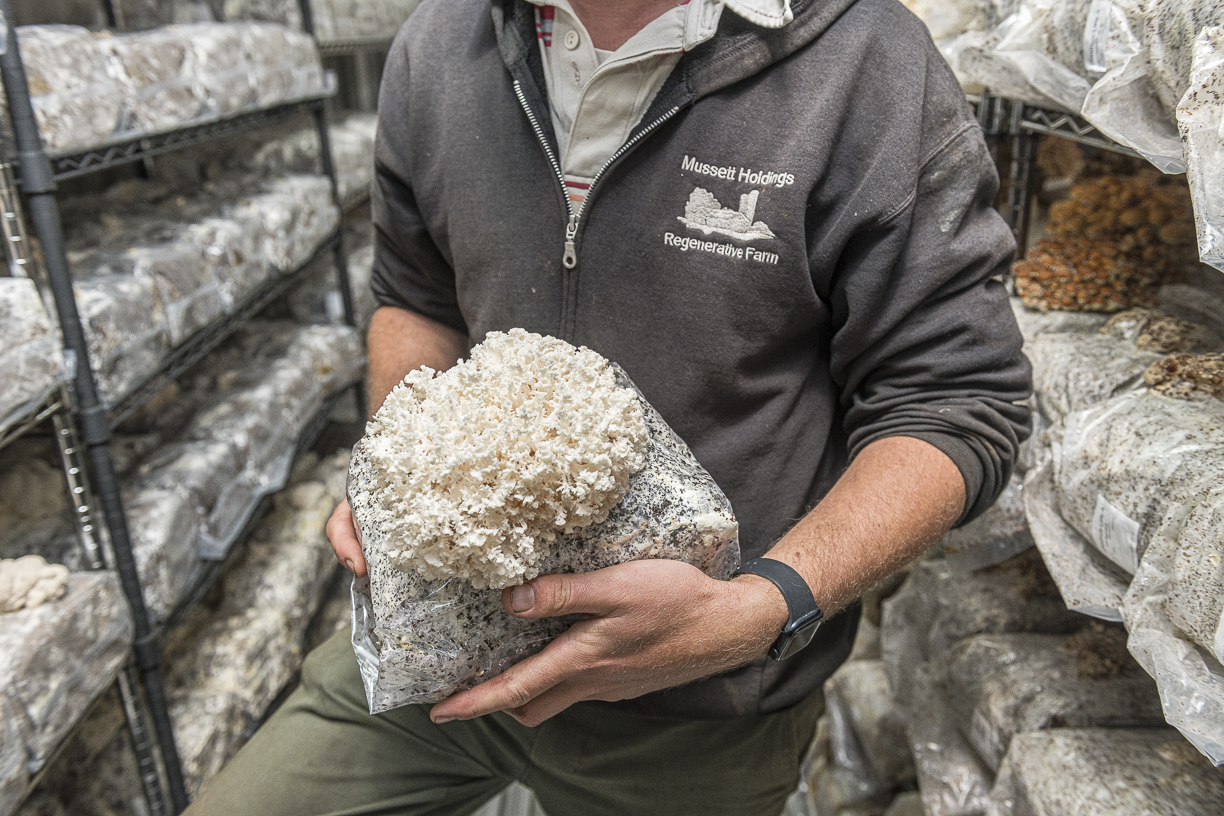
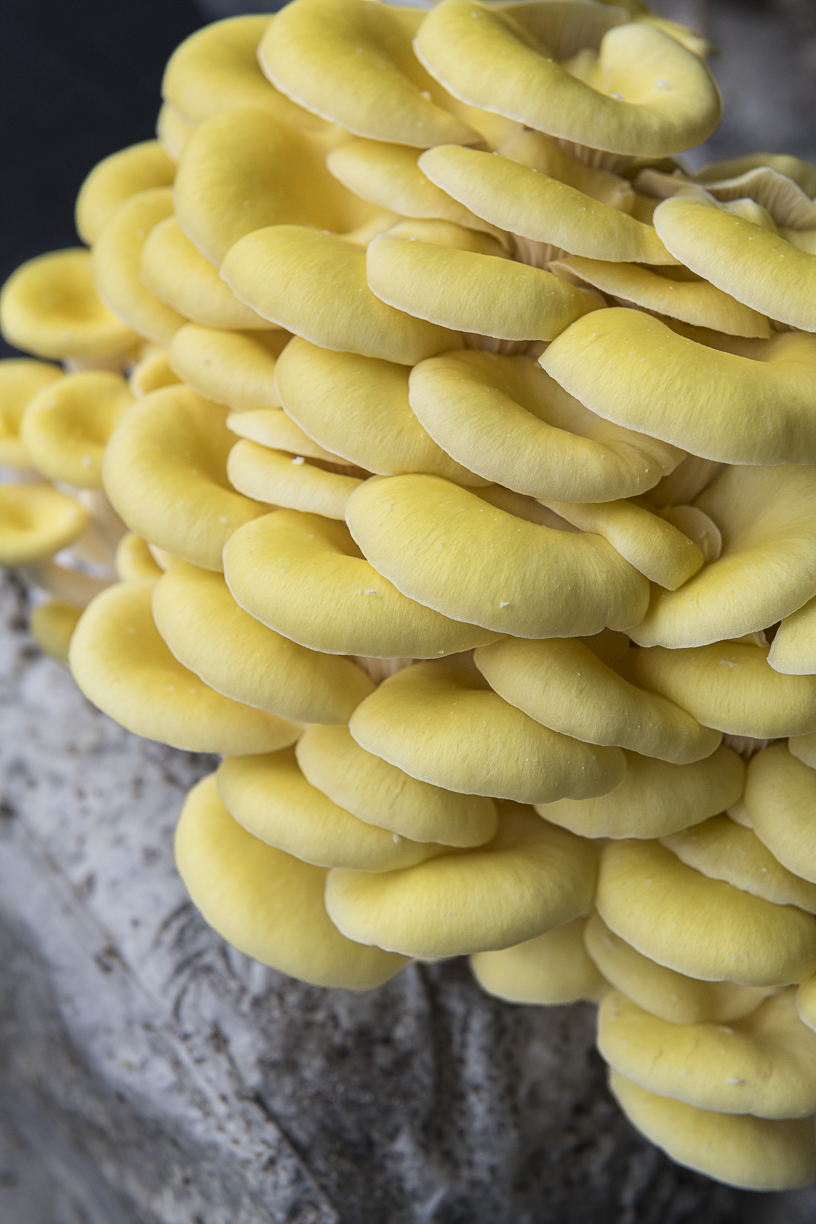
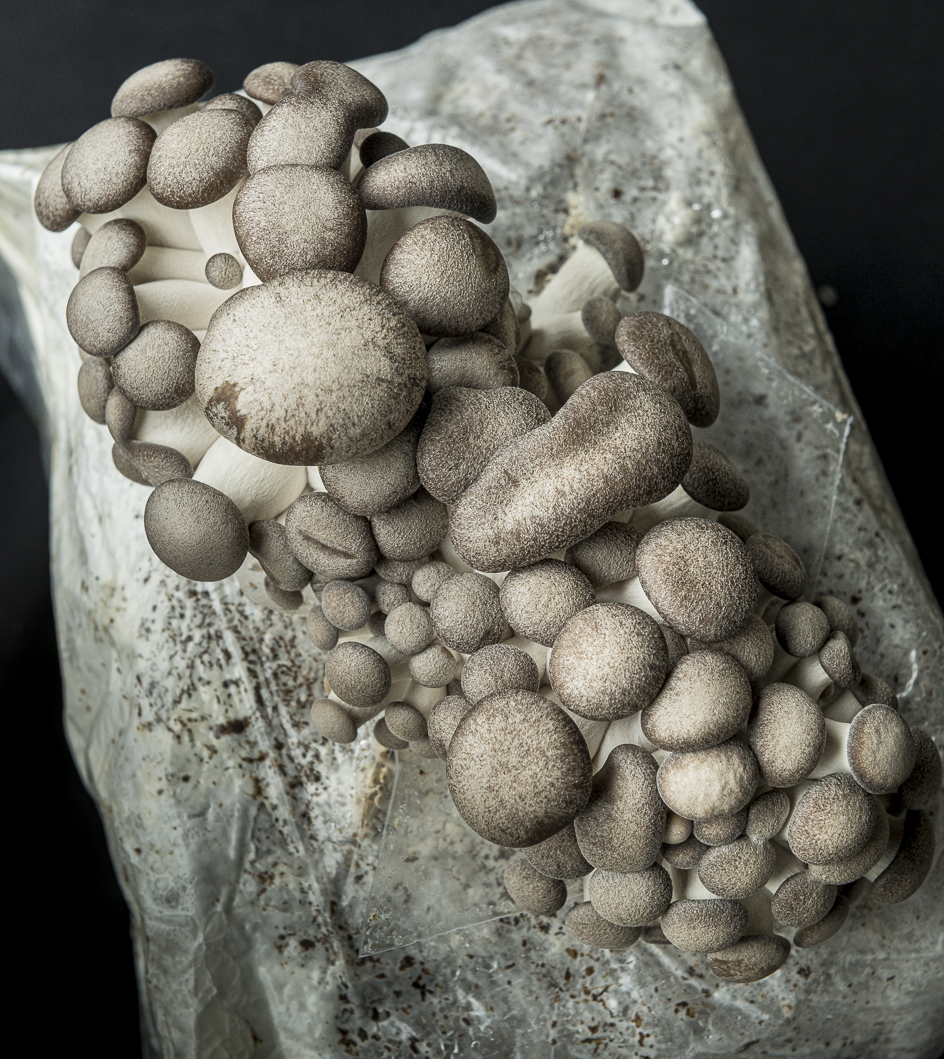
The business mushrooms
“If you are making all this beautiful grass from chickens you should use it, otherwise you have to mow it,” Will says. “You could have livestock eat it, but an organic farm had the stall next to me at Bondi markets and the guy manning it told me about growing gourmet mushrooms in 20 litre buckets filled with straw. He decided to come and work with us.”
They bought two old, insulated shipping containers and started growing a variety of oyster mushrooms on straw from the farm.
“We would cut the grass from the chicken areas and leave it to dry out in the paddock. We would then soak the dried grass in a limewater solution, to pasteurise it, then drain off the excess water and mix it with grain spawns from a variety of oyster mushroom. We then stuffed the mix into 20 litre buckets with holes in them or giant hanging bags.”
The mushroom business started well but was forced to pivot when drought meant there was a dearth of grass to convert into straw.
They changed from a straw-based system to a hardwood sawdust system which allowed them to grow a wider variety of gourmet mushrooms that could be sold to providores and restaurants. These include chestnut, lion’s mane, coral tooth, black pearl as well as king and gold oysters.
Surprisingly, eggs and mushrooms are similar to farm.
“It is daily work for both,” says Will. “You have to collect eggs every day and you have to harvest mushrooms numerous times every day because they grow so fast. You harvest the bulk of the mushrooms first thing in the morning, but the most important harvest is last thing at night because they can double in size overnight.”
The new branch of the business excited Will’s love of problem-solving.
“The heating system for the mushrooms has been repurposed from an old steam boiler from a timber kiln,” he says enthusiastically. “We run the wood boiler during the day and that fills up these old electric hot water storage tanks that were being thrown away with piping hot water. They are not wired up, they are just there as a hot water buffer. A tiny pump then slowly trickles that hot water into radiators in the mushroom rooms.”
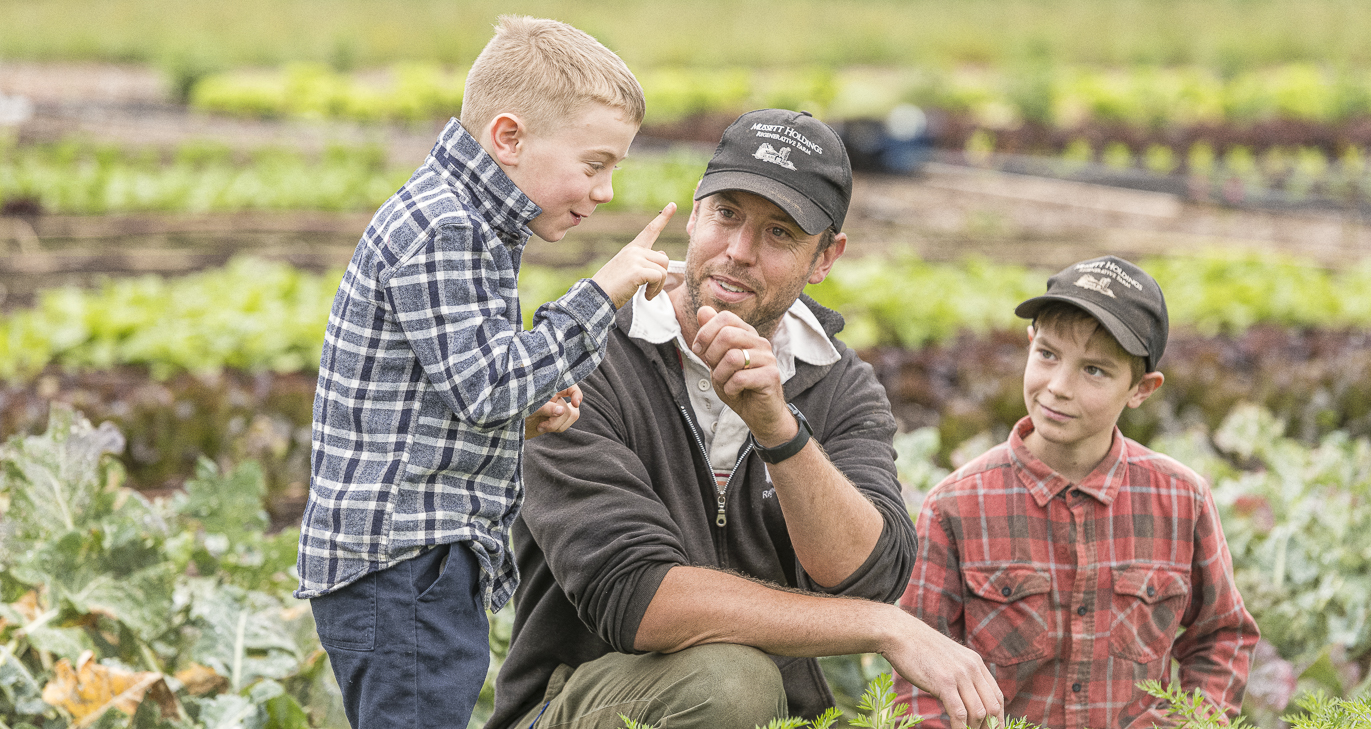
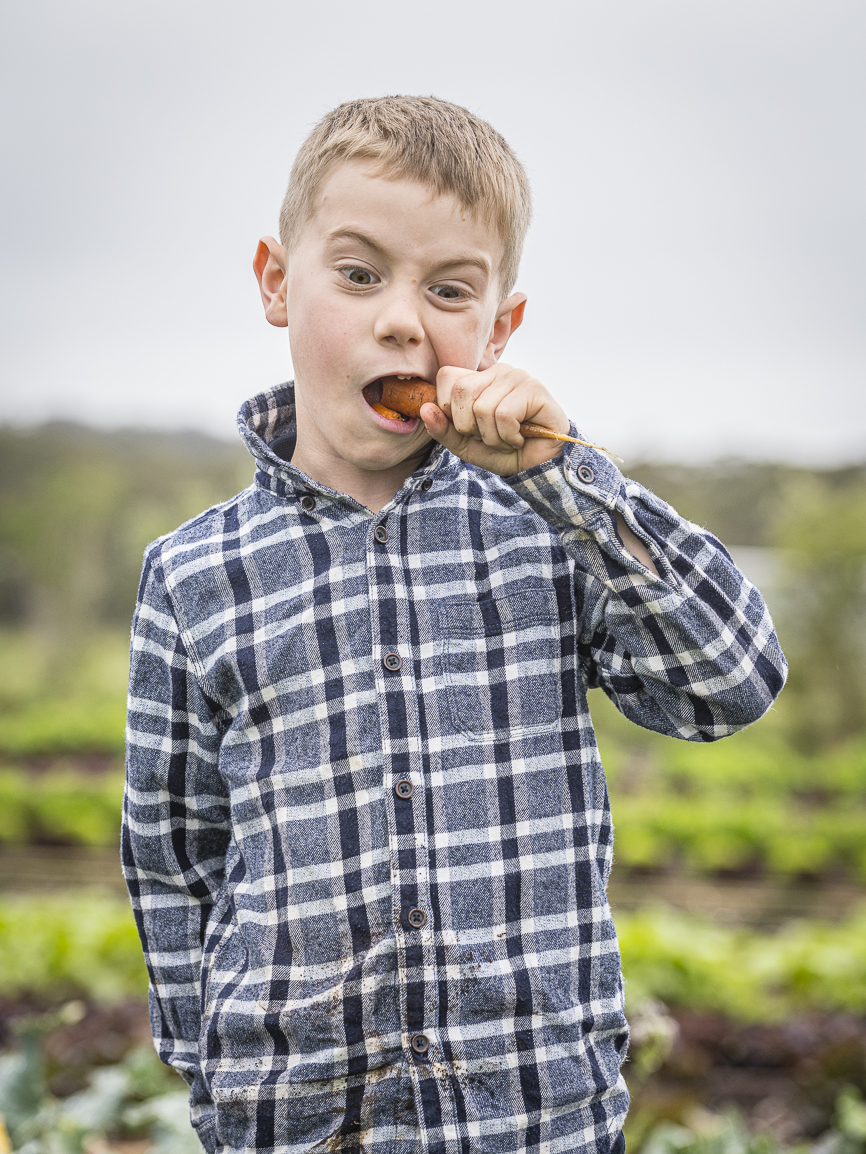
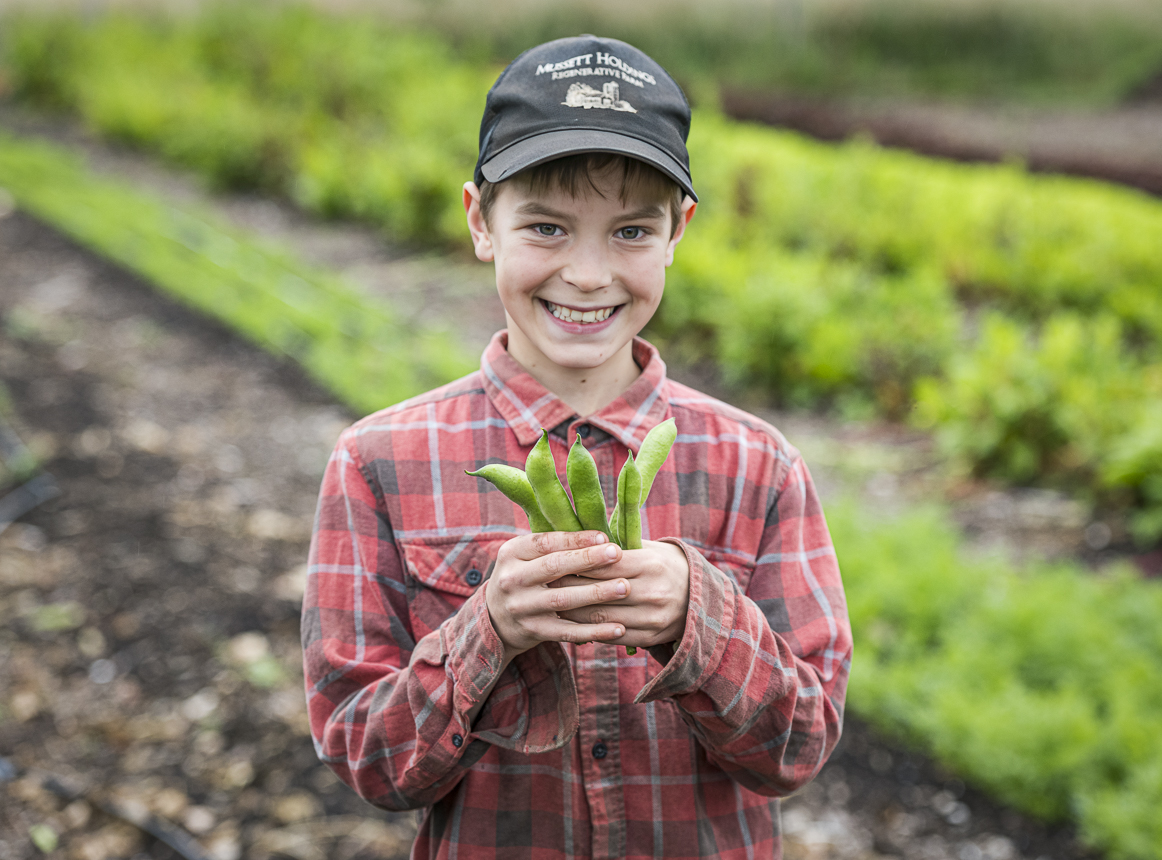
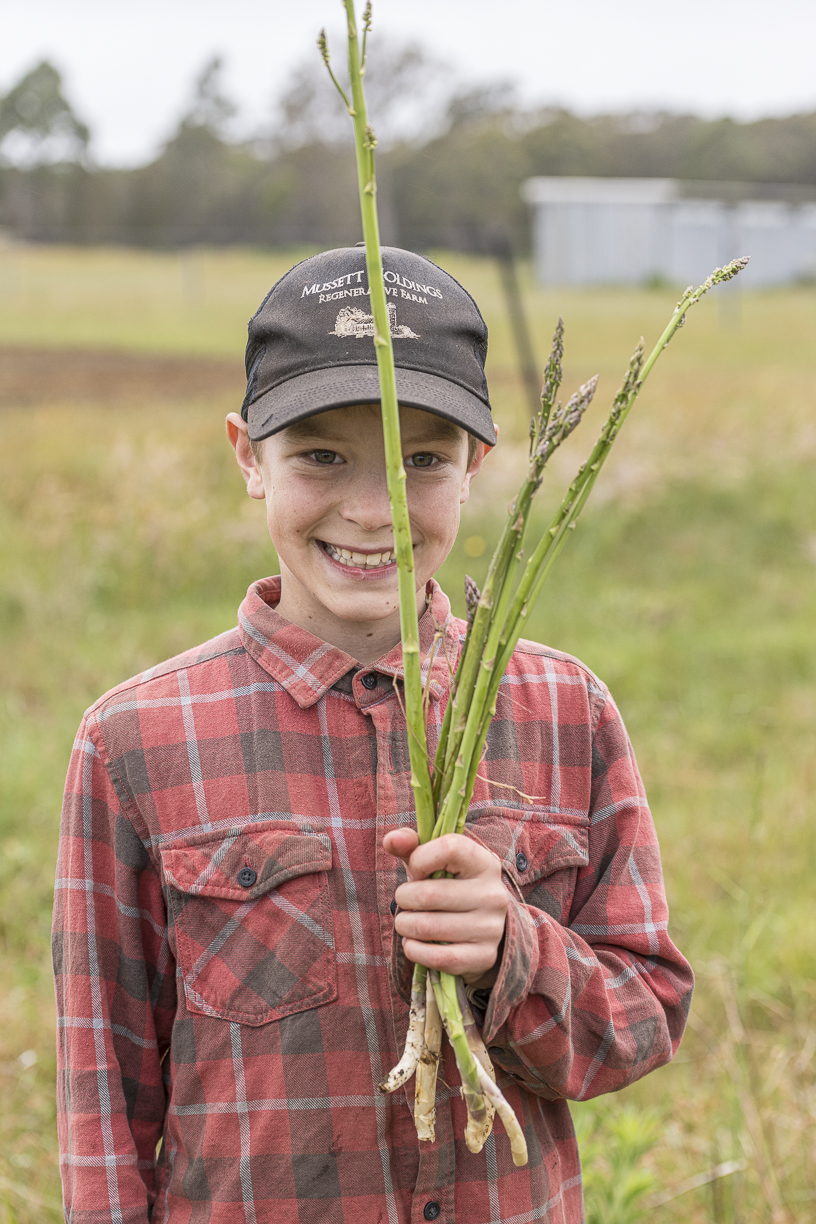
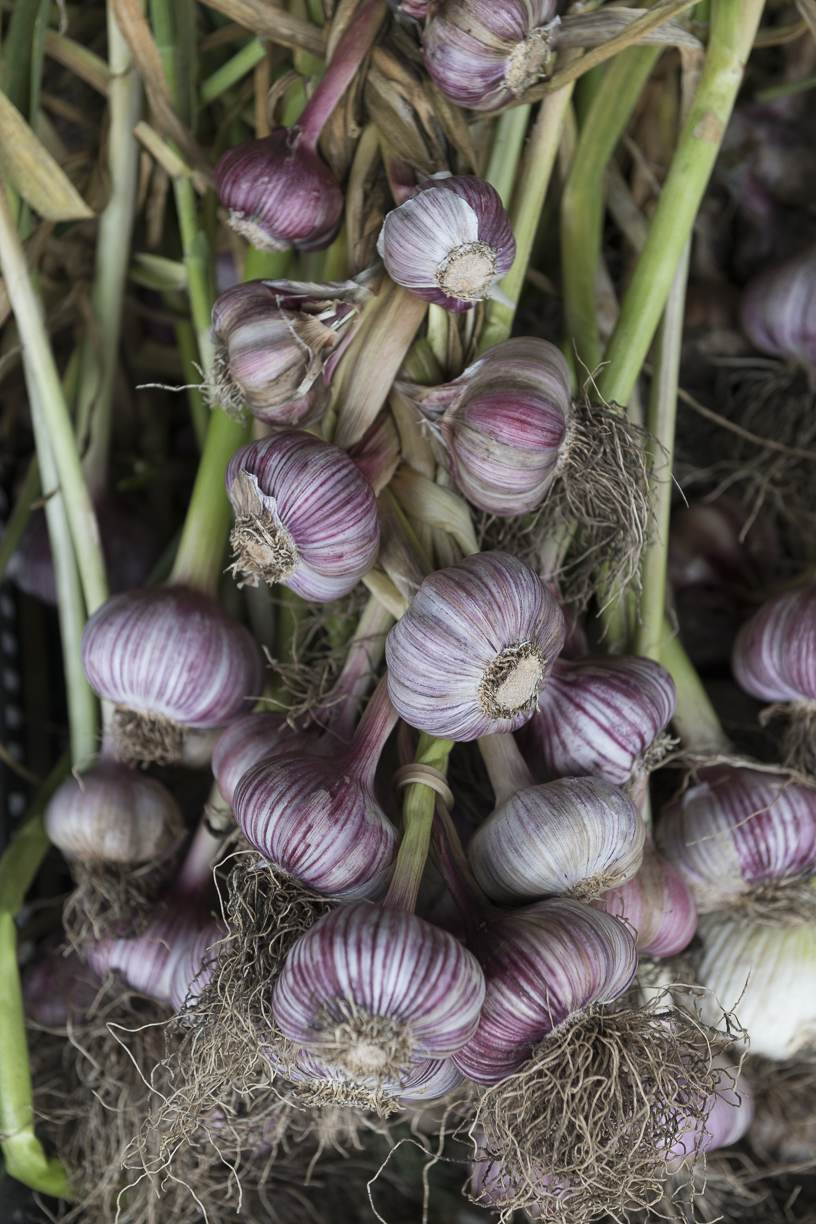
COVID booster
Mussett Holdings was one of those businesses that prospered during the COVID-19 pandemic. Before COVID, they were making about 60 home deliveries each week – and that number jumped to about 200.
“Home deliveries exploded,” Will recalls, “but at the same time everything we had been sending to cafes, restaurants and retailers just stopped.”
Sydney’s farmers’ markets also benefited during COVID because people were permitted to shop for food during restrictions and lockdowns.
“It went bonkers. Before COVID we would turn over about $1,100 or $1,200 on a good day at the markets and that went to about $4,000.”
COVID behaviours have stuck and home deliveries remain a substantial part of Mussett Holdings’ business – at more than double pre-COVID levels. The volumes became too much for Will to do on his own, so they now use a contractor.
The growth in the business, and the growing demands on Connie, resulted in her resigning from her financial job three years ago.
“I was working for Westpac from home four days a week, the kids were at home because the schools were closed for COVID and I was cleaning eggs at night,” she says. “It was too much and I’d done my time.”
Garden to table
Two years ago, the Mussetts’ interest in regenerative farming led them to look for ways to use their mushroom compost productively. They now offer boxes of seasonal vegetables including carrots, broccoli, cabbage, lettuces, boy choy, broad beans as well as garlic. They are also now experimenting with a range of specialty herbs.
At about the same time, they started farm tours during school holidays and these have proved very popular, despite numbers being limited to 20. The demands of the farm mean that tours are now only offered on Saturdays.
For Will and Connie, regenerative farming is a continuous learning process.
“Every day’s a school day,” says Will. “I don’t think we can take on a whole new category but we would like to continue refining what we are doing and also try specialties that are suited to the by-products of the other elements of the farm. I am fascinated by obscure herbs, so we are seeing if we can make them work in our conditions.”
Their accidental journey didn’t begin with a grand plan and has involved several twists and turns.
“We have just gone with the flow,” says Will, “and it’s fun because you have to think about everything. With farming you encounter heaps of problems and we’re off grid, relying on solar and wind, so there are even more problems to solve.
“To be able to produce your own food is just phenomenal and we get to share it as a family.”
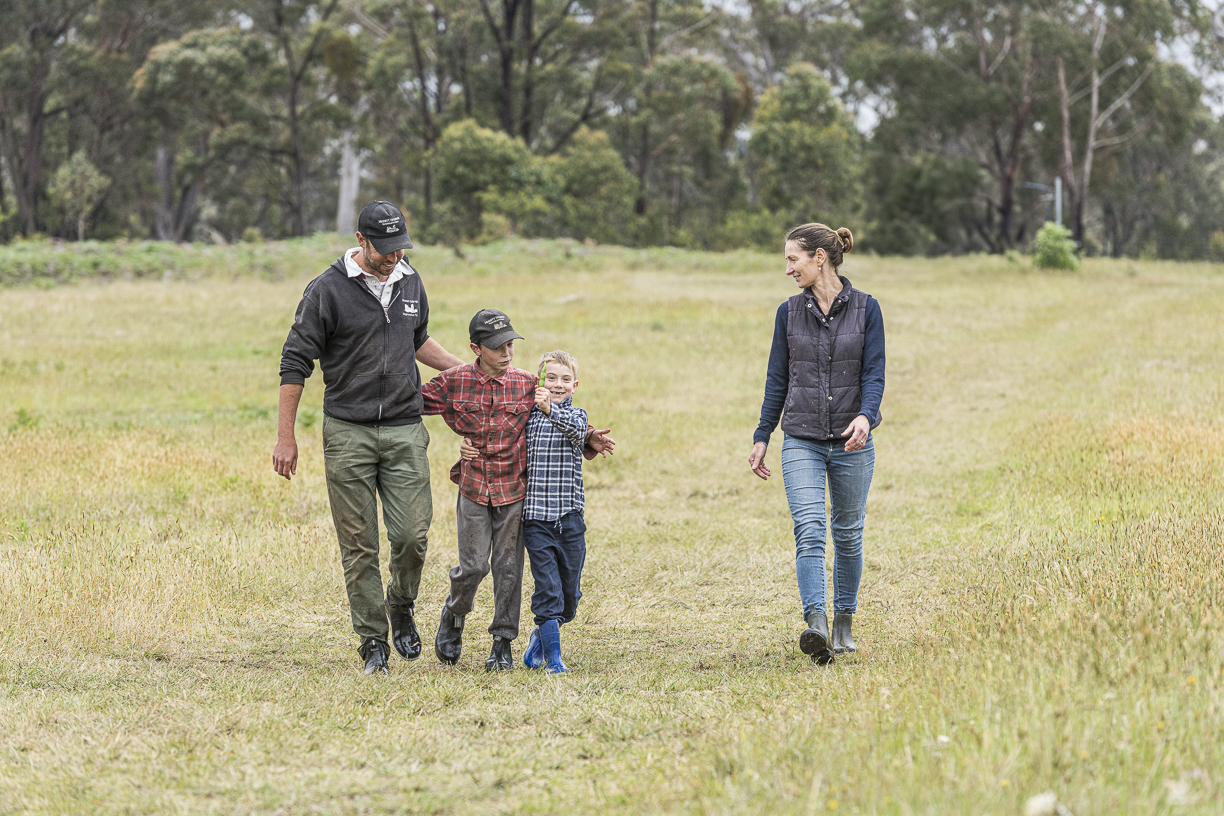
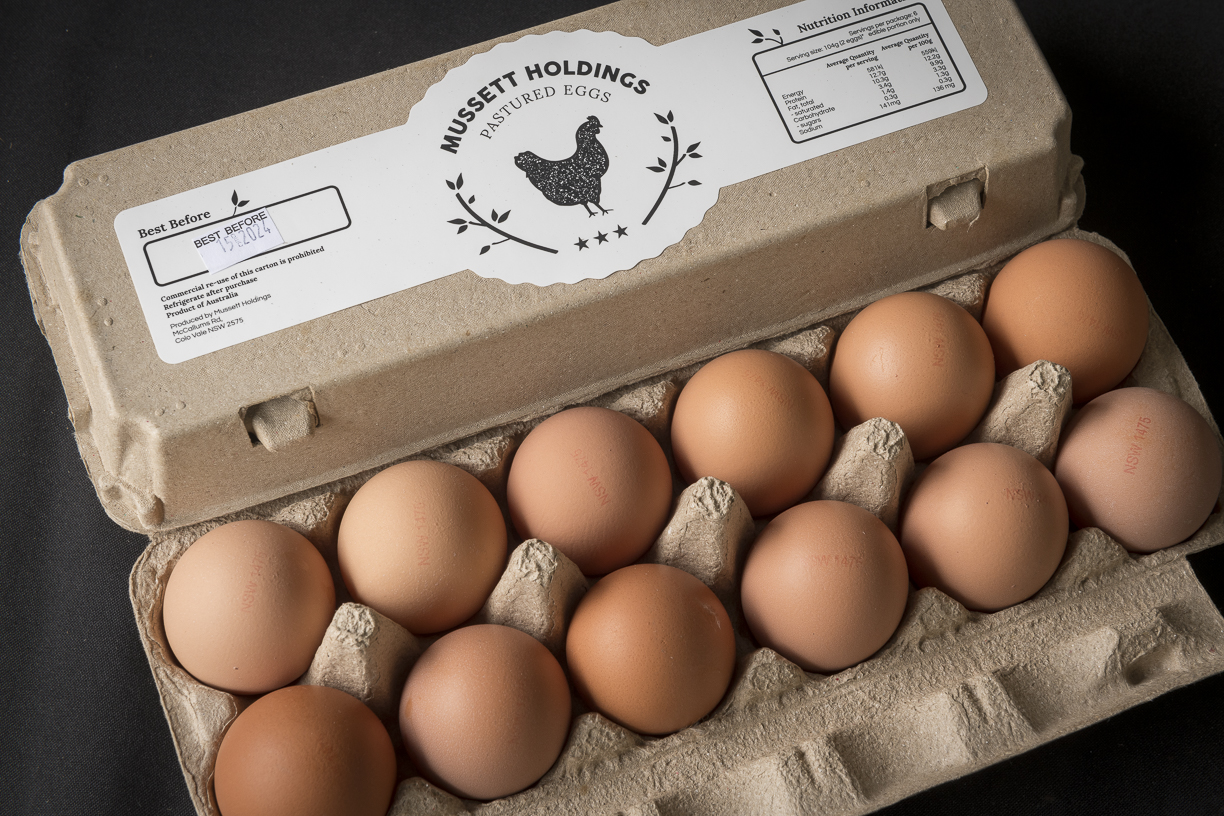
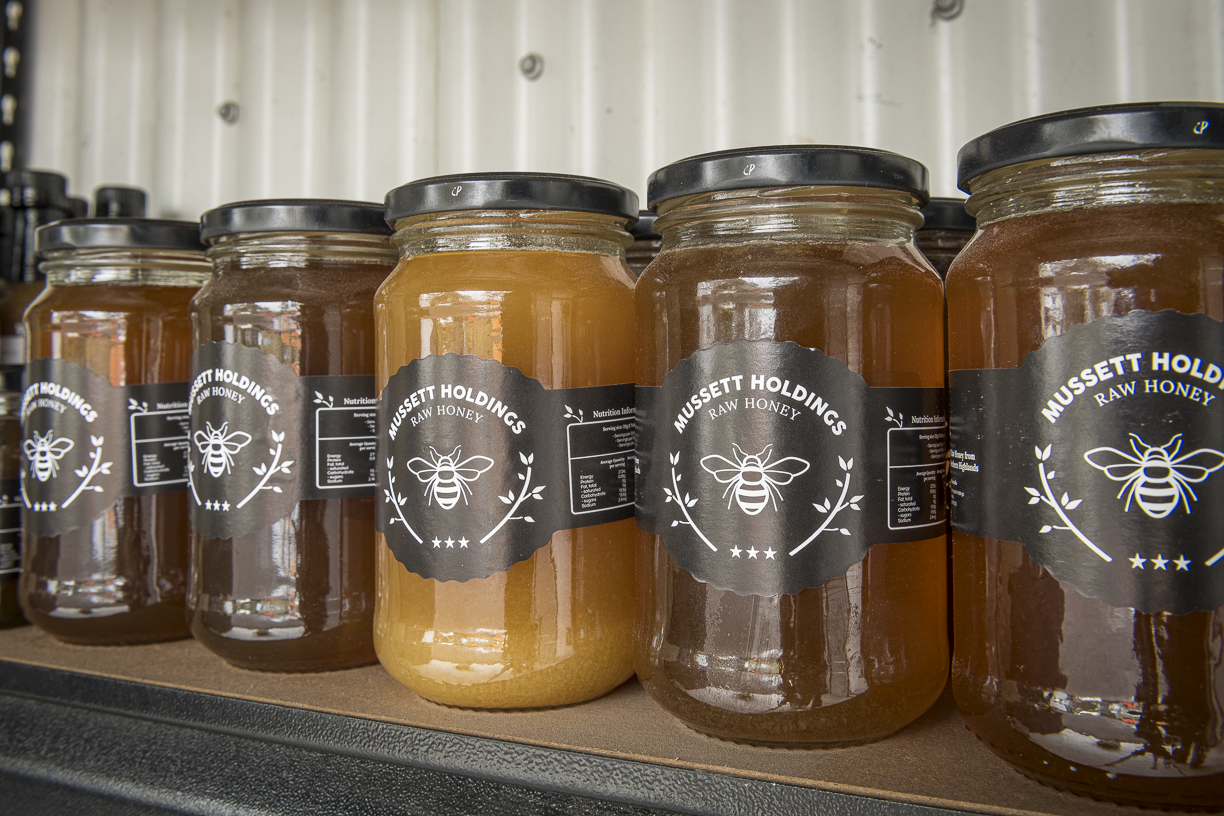

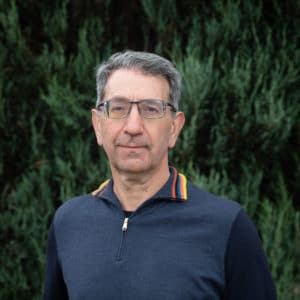
Michael Sharp
Michael has been working at Michael Reid Southern Highlands since it opened in March 2022. He has previously worked as a lawyer, journalist and senior practitioner in Australian corporate affairs.
- xxi Pecora Dairy June 2024
- xxx In Conversation: Evan Shipard March 2026
- XXIX David King December 2025
- XXVIII Nicola Woodcock August 2025
- xxvii Marlie Draught Horse Stud May 2025
- xxvi India Mark February 2025
- xxv Mussett Holdings December 2024
- xxiv Louise Frith October 2024
- xxiii Dirty Jane August 2024
- xxii Melanie Waugh July 2024
- xx Emily Gordon May 2024
- xix Steve Hogwood March 2024
- xviii Julz Beresford February 2024
- xvii Snake Creek Cattle Company November 2023
- xvi Ben Waters September 2023
- xv The Reid Brothers August 2023
- xiv Elizabeth Beaumont July 2023
- xiii The Charlotte Project June 2023
- xii Buddhism in Bundanoon May 2023
- xi Honey Thief April 2023
- x David Ball February 2023
- ix Kate Vella January 2023
- viii The Truffle Couple December 2022
- vii Wombat Man November 2022
- vi Storybook Alpacas September 2022
- v Tamara Dean August 2022
- iv John Sharp July 2022
- iii Amanda Mackevicius June 2022
- ii Denise Faulkner May 2022
- i Joadja Distillery March 2022










